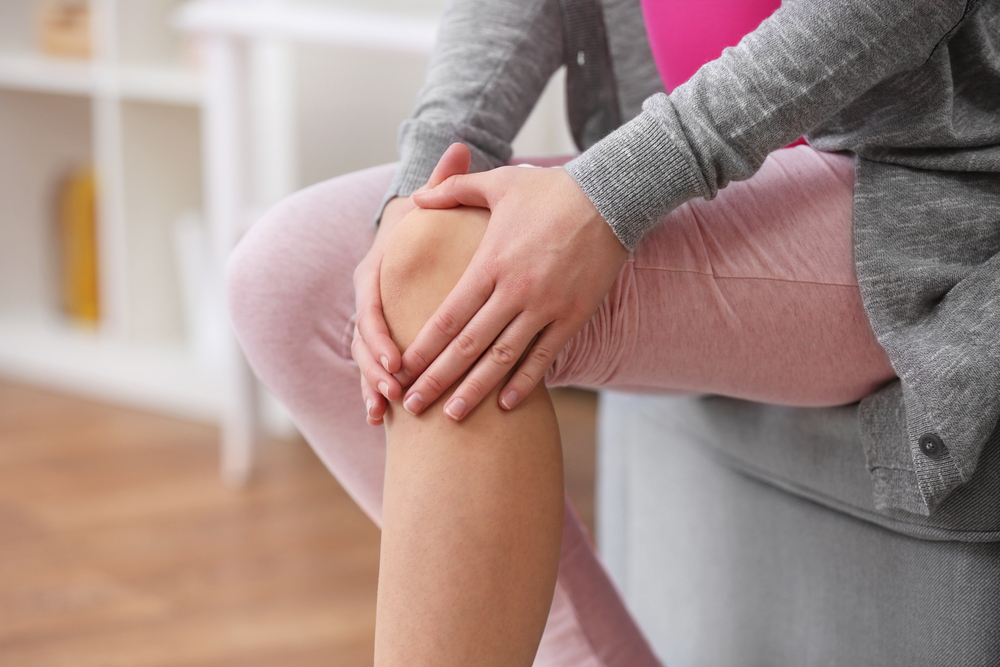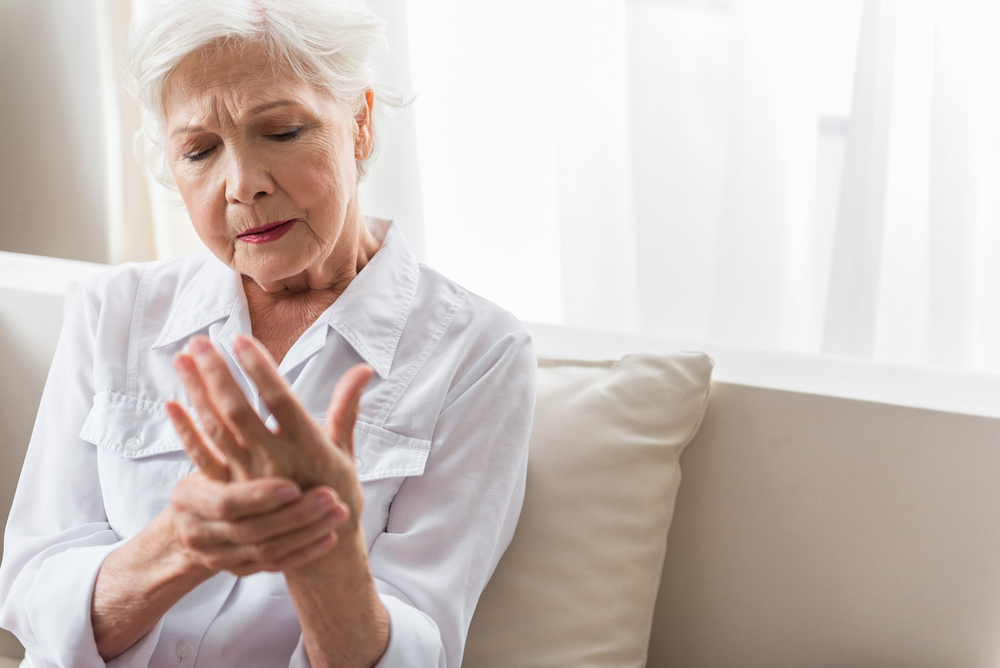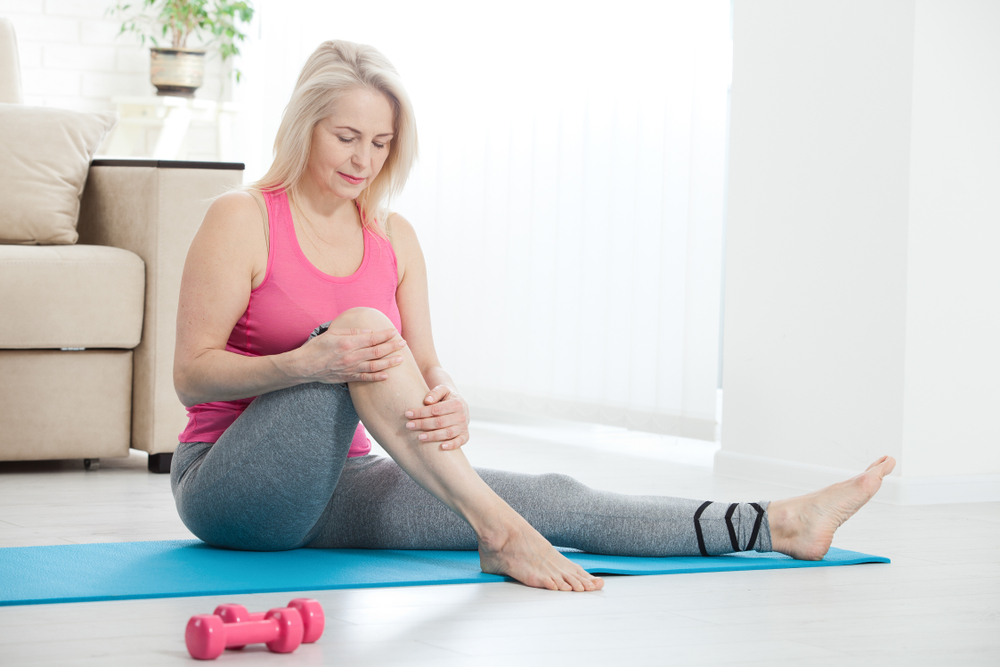About ten years ago, I experienced my first stab of joint pain. It was a crippling pain in my knee, making it painful to put pressure on and difficult to walk. As a triathlete, the thought of laying up immobile and inactive was difficult to swallow. However, at only 50 years old, I decided that I wasn’t ready to become a victim of arthritis or degenerative joint conditions yet. So I armed myself with all the knowledge I’m sharing with you here so that I could continue to live the active lifestyle that I love. You can, too, with my top strategies for preventing and relieving joint pain.

WHAT ARE JOINTS?
A joint is the part of your body where two bones connect in a way that allows movement. For example, the knee, elbow, shoulder, hip, and wrist. The more flexibility in the joint, the greater the risk of injury, as the integrity of the joint is weakened to allow a range of movement.
Joints contain a variety of fibrous connective tissue. Ligaments connect the bones to each other. Tendons connect muscle to bone. Cartilage covers the ends of bones and provides cushioning.
CAUSES OF JOINT PAIN
Joint pain occurs when there is a problem with one or more elements that make up the joint. This can be due to age, genetics, or wear and tear. When the connective tissue wears down, it causes conditions such as Osteoarthritis. This causes the bones to grind together, resulting in pain and degeneration of the bone.
Similarly, Rheumatoid Arthritis happens when the immune system doesn’t work properly and attacks the lining of the joints, typically resulting in warm, swollen, and painful joints. I interviewed Dr. Justine Bernard to learn the importance of building stronger bones to prevent conditions such as these. You can hear what she has to say here.
In addition to this, joint pain can also be caused by fluctuations in estrogen levels during menopause. If you think this may be the case, consult your doctor.

7 WAYS HOW TO PREVENT AND RELIEVE JOINT PAIN
The best way to deal with joint pain is to make healthy lifestyle choices that prevent it in the first place. If you’ve already passed that line, be proactive in relieving the deterioration and pain caused by joint issues. Try these strategies to prevent and relieve joint pain:
Keep a healthy weight.
The more weight you carry, the more pressure your joints take. Your knees bear four times more stress for every extra 1lb of weight! Check your ideal weight or BMI with your doctor or search online with your height, age, etc to find a healthy weight for you. Achieve this by eating a healthy diet and staying active.
Exercise daily.
If you want to maintain a healthy weight (and a healthy mindset!), get up and move. Sitting around lamenting that you’ve gained a few extra pounds or that you’ve had sore joints won’t help alleviate either of those issues. Low-impact exercise is great for achy joints. Try swimming, biking, or even walking.
If you’re sitting at your desk often, try to be active in ways you can. Get up and get a drink every hour, rotate your ankles, and do some funky arm stretches to prevent joint stiffness. Check out my 5-minute office workout for days when you’re sitting a lot!
Maintain good posture
Whether it’s sitting or standing, you need to get into your Pilates body. Stand balanced on both feet and imagine a crown atop your head. There’s a string attached to the crown, and someone gently pulls it up towards the ceiling. This straightens your back and pulls your navel into your spine. Your shoulders are low, arms relaxed by your side, and you’re looking out to the horizon.
It’s important to maintain this posture during exercise, too. In addition, posture is greatly affected by tasks such as lifting heavy objects. Be sure to bend your knees and maintain that straight back when lifting.
Build your strength.
Strength training is a vital component of how to prevent joint pain as it keeps the muscles rounded and the joints strong and healthy. If you don’t have access to a class you can use resistance bands at home or even your own body weight.
Strengthen your core.
Don’t panic! You don’t need to suffer through sit-ups to strengthen your core! Pilates is the perfect low-impact way to build strength, balance, and flexibility. By creating a strong core, you increase the range of movement in the rest of your body and prevent the degeneration of joint and connective tissues.
Anti-inflammatory foods
Foods such as blueberries, broccoli, peppers, avocado, turmeric, ginger, cinnamon, and garlic are all high in Vitamin C, antioxidants, and anti-inflammatory properties. Reducing inflammation around the joints will stop bone corrosion and associated pain.
Stay hydrated.
Water is your life source. It’s essential that you stay hydrated with water (not juice, caffeinated drinks, or alcohol!) When your body is dehydrated, it will pull the water from areas of the body to give to areas that require more of it. Reducing hydration in cartilage will increase the pressure on the joints and cause inflammation.
Hydration aids the joints by improving shock absorption.

EXERCISES TO HELP RELIEVE JOINT PAIN
Pilates is the perfect low-impact exercise to help prevent and relieve joint pain. My top 3 movements are:
- Dead Bug – lie on your back with your arms and legs up to the sky. Engage your core by pulling your navel to your spine and tightening your pelvic floor. Keeping your hips on the floor, stretch your right arm and left leg down to the floor. Then swap and do the opposite sides.
- Bridge – lie on your back with your knees bent and feet on the floor. Tilt your pelvis, engage your lower abdominals, and lift your back one vertebra at a time.
- Plank – get into a press-up position, engage your core, and hold the position for as long as is comfortable. There are many variations of this one which you can find on my Youtube channel.
Check out this video for demonstrations of the positions mentioned above.
I’ve managed to control my joint pain with these strategies, and my knee rarely causes me pain or discomfort. Be proactive in your lifestyle choices so that you can continue to do the things you enjoy without suffering joint pain!
🌟Fasted + Fit Over 50 Jump Start, a 7-day self-study course! It’s your perfect first step towards better health, offering easy-to-adopt Intermittent Fasting strategies paired with Pilates exercises. It is ideal for kickstarting a healthier routine without feeling overwhelmed. Let’s begin your wellness journey together. Interested? Join the program right now.
As someone who suffers from RA it’s good to read this! Thank you
Michele, I am glad it was helpful.
Ive lived with joint pain and RA for years. My bones are terribly weak. All the remedies that you’ve mentioned will certainly help. Thank you for sharing. We need to take care of our bodies.
Thank you, Nancy. RA can be so painful. I hope you checked out my podcast with Dr. Justine Bernard, where we talk more about weak bones and what to do.
Such great info Heike! I never knew that hormone fluctuations could cause joint pain. I am guilty of poor posture, and know that’s the cause of much of my discomfort. I learned a lot today!
I am glad Andy that this post was helpful. May I recommend Pilates for better posture? Thanks for being here.
Comments are closed.